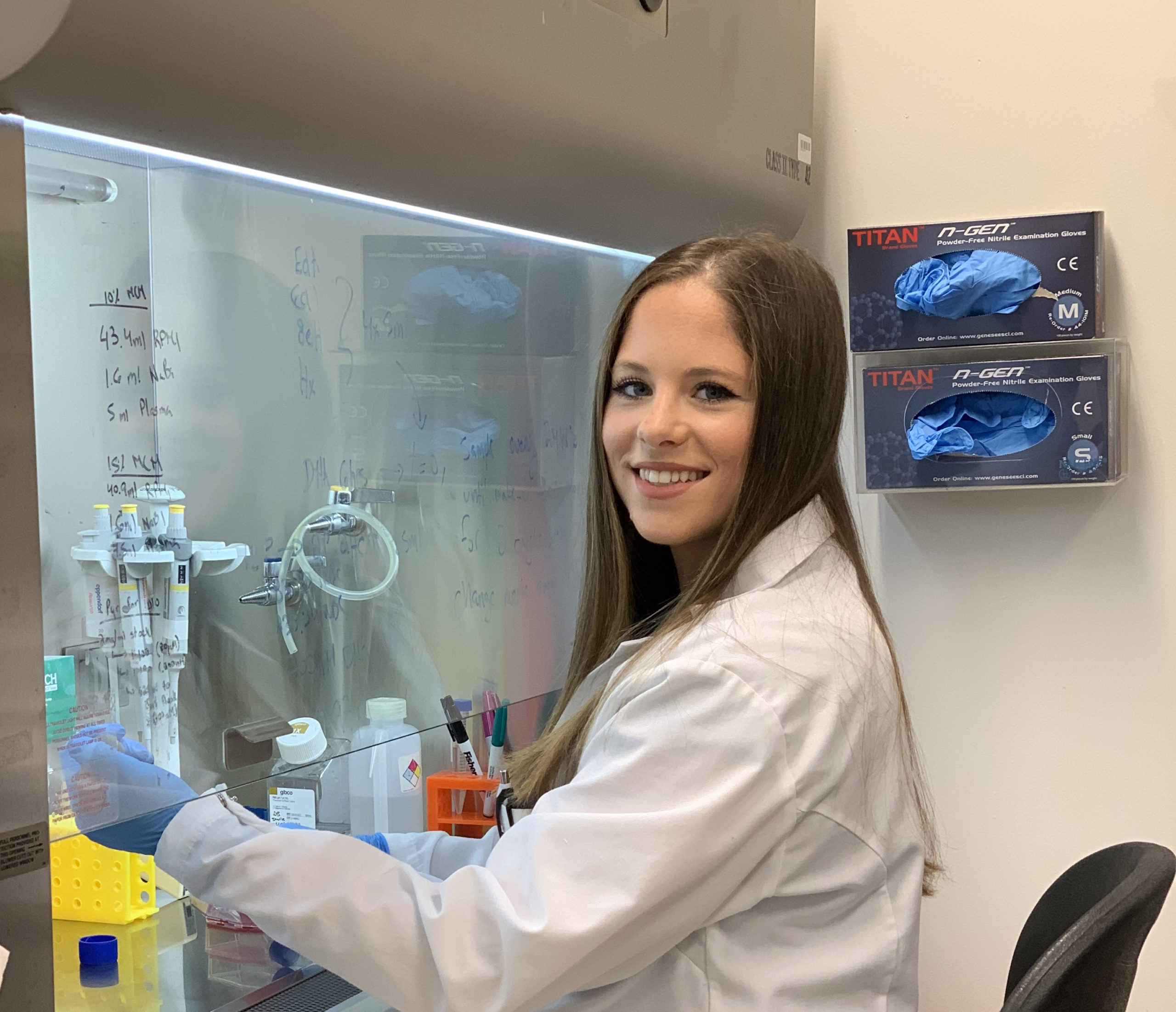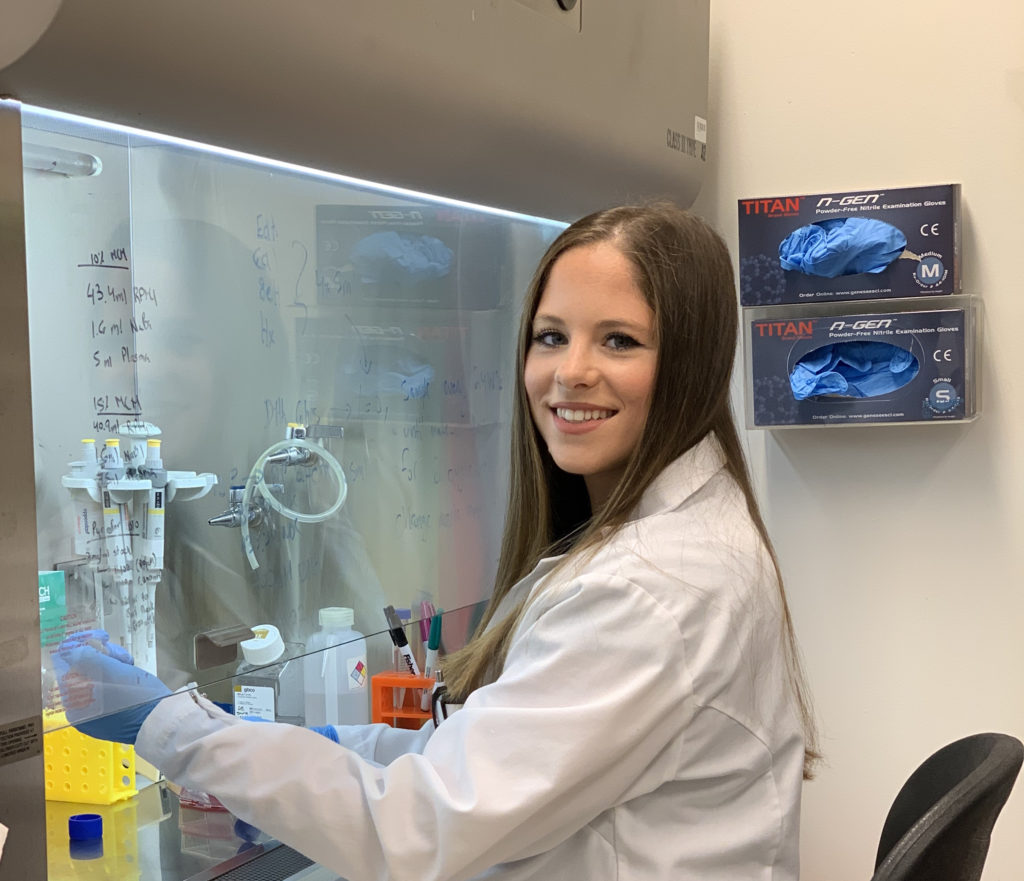Trainee Spotlight: Alona Botnar


T32 trainee Alona Botnar is entering her fifth year as a Ph.D. candidate in Dr. Dennis Kyle’s laboratory. She is from Doylestown, Pennsylvania and completed her B.S. in Chemistry with a minor in Biochemistry at the University of Georgia in 2015. During her undergraduate career, she also worked at Janssen, a pharmaceutical company of Johnson & Johnson as a Biologics R&D co-op.
As a graduate student, she was able to spend three semesters teaching Anatomy and Physiology labs here at UGA, and in 2019, she was awarded the Outstanding Teaching Assistant Award sponsored by the Office of the Vice President for Instruction. She also received a graduate school travel award to attend the 2018 annual meeting of the American Society of Tropical Medicine and Hygiene in New Orleans, Louisiana, and an Office for Vice President and Research travel award to attend the 2020 Molecular Approaches to Malaria meeting held in Lorne, Victoria, Australia.
Why did you choose UGA?
Having been at UGA for my undergraduate degree, I was already in love with UGA and Athens and all that they have to offer. I was attracted to the Integrated Life Sciences program because it gives incoming graduate students the freedom to explore a wide range of research topics among 14 different departments before choosing the lab they would ultimately like to join. Furthermore, I found the interdisciplinary approach of the program appealing. I love the Center for Tropical and Emerging Global Diseases because of all the resources available to us as scientists. Not only do we have state of the art microscopy and flow cytometry cores, but we also have very collaborative labs that are happy to share equipment, supplies, and expertise.
What is your research focus?
My research is focused on malaria and addressing significant problems at the stages of development at which the malaria parasite enters a drug-induced dormant period and evades the antimalarial. The mechanism by which the parasite enters drug-induced dormancy and later recrudesces to continue development is currently unknown.
Half the world’s population is at risk of malaria with about half a million people dying each year from it. A majority of these deaths are in children under the age of 5, located mainly in sub-Saharan Africa. While there are 5 species that can infect humans, Plasmodium falciparum is the most lethal and is responsible for a majority of the deaths. Our current arsenal of malaria drugs is failing at an alarming rate as drug-resistant strains of the parasite continue to emerge.
Thus I chose this research project because it is vital that we respond to the challenge of antimalarial drug resistance by not only developing novel drugs but also by understanding the mechanisms the parasite is using to evade the drugs.
What are your future career goals?
I plan on continuing my work in the field of infectious diseases. I am leaning towards industry research but I’m keeping an open mind. Lately, I have been interested in alternative careers available to life science Ph.D.’s such as consulting and being a medical science liaison.
What is your favorite thing about UGA?
UGA football. There’s nothing quite like a fall Saturday in Athens between the hedges. GO DAWGS!
Do you have any advice for a student interested in this field?
It’s never too early or too late to get into the field. Don’t be afraid to send those emails and get involved in research. And always ask questions.
